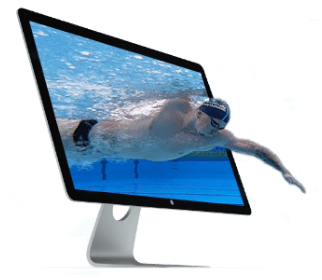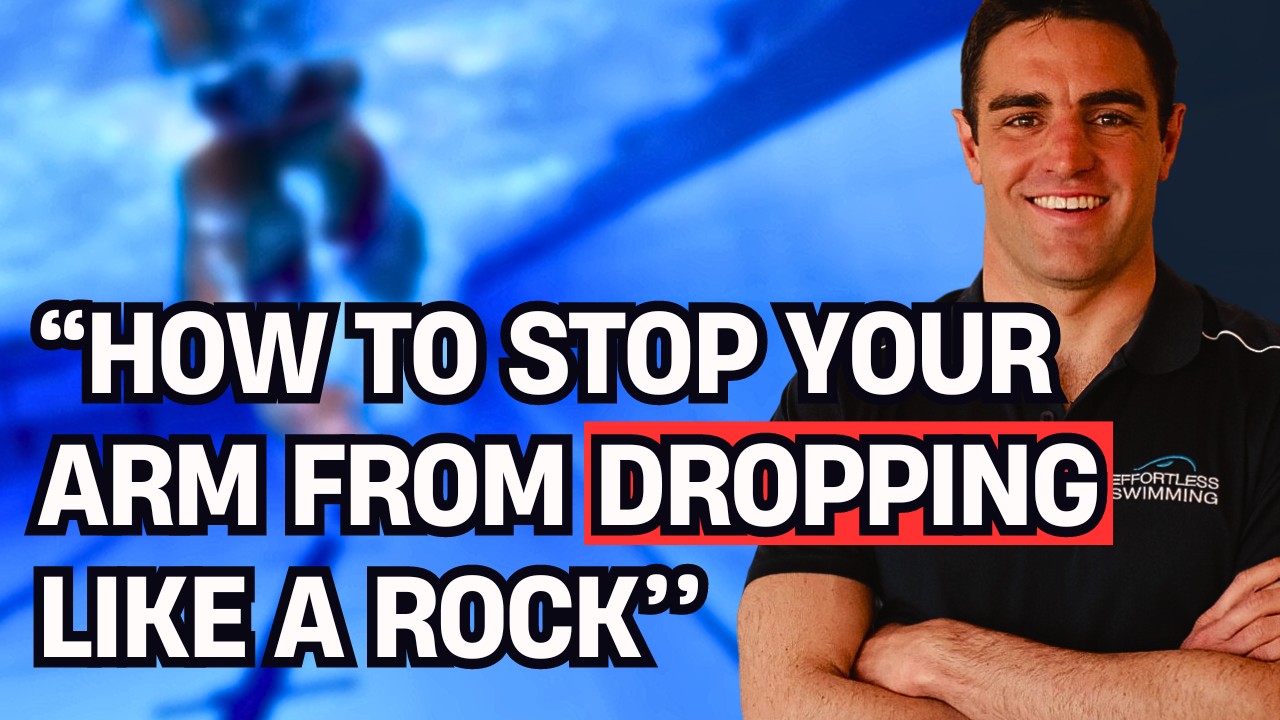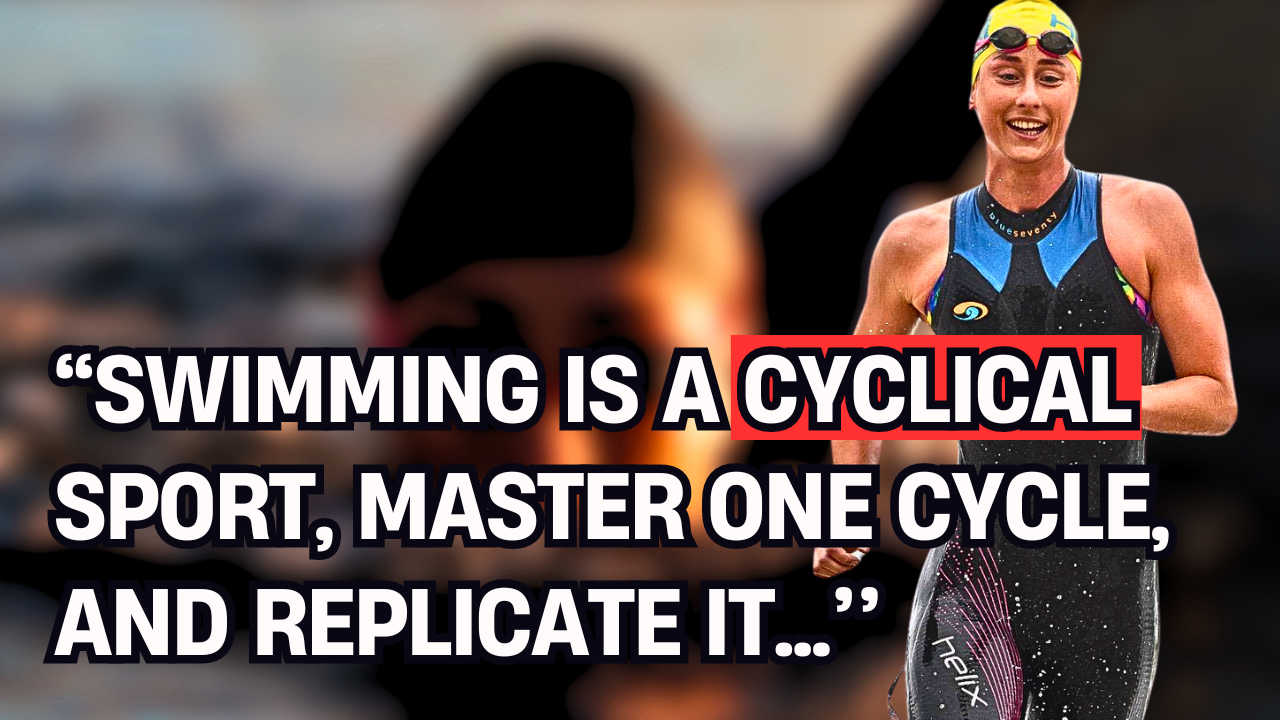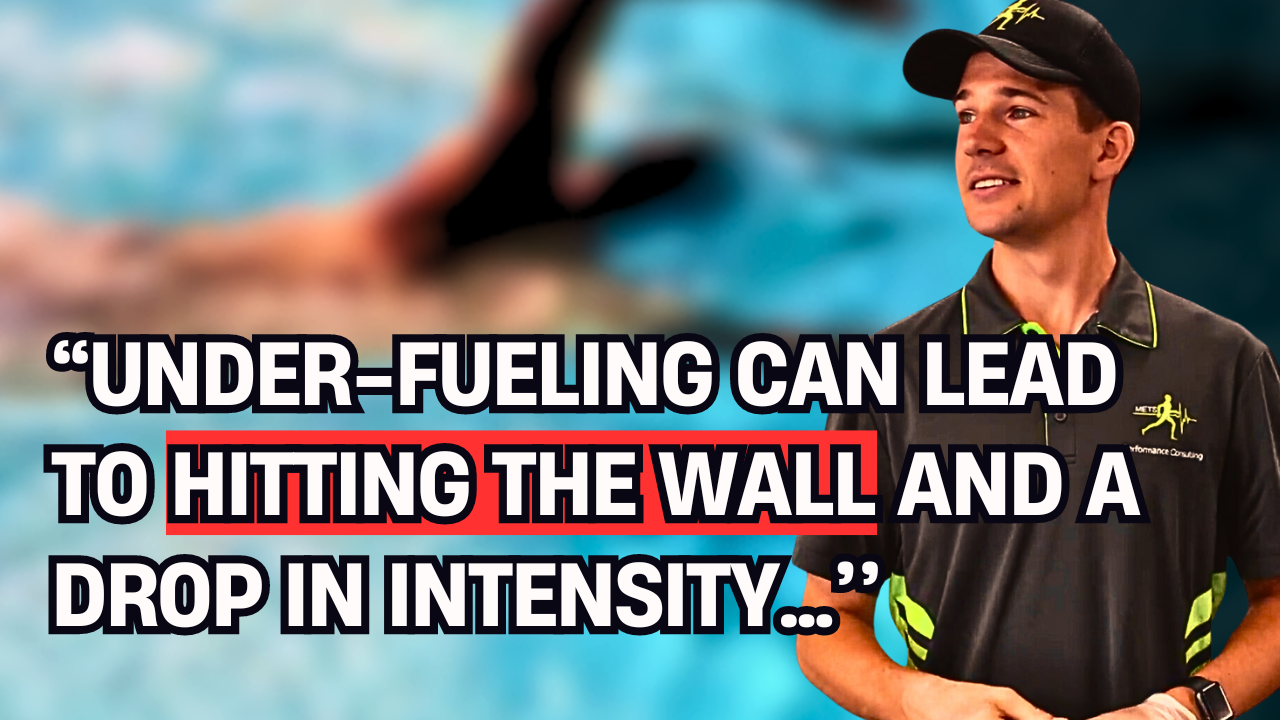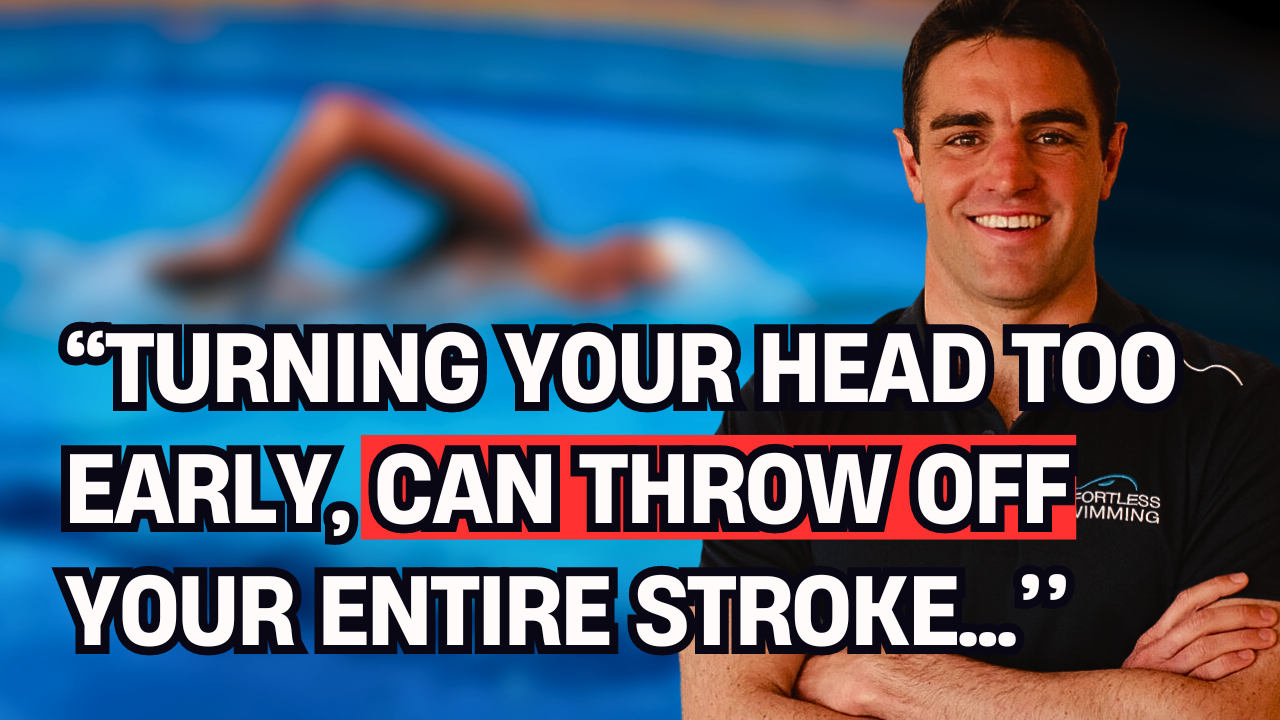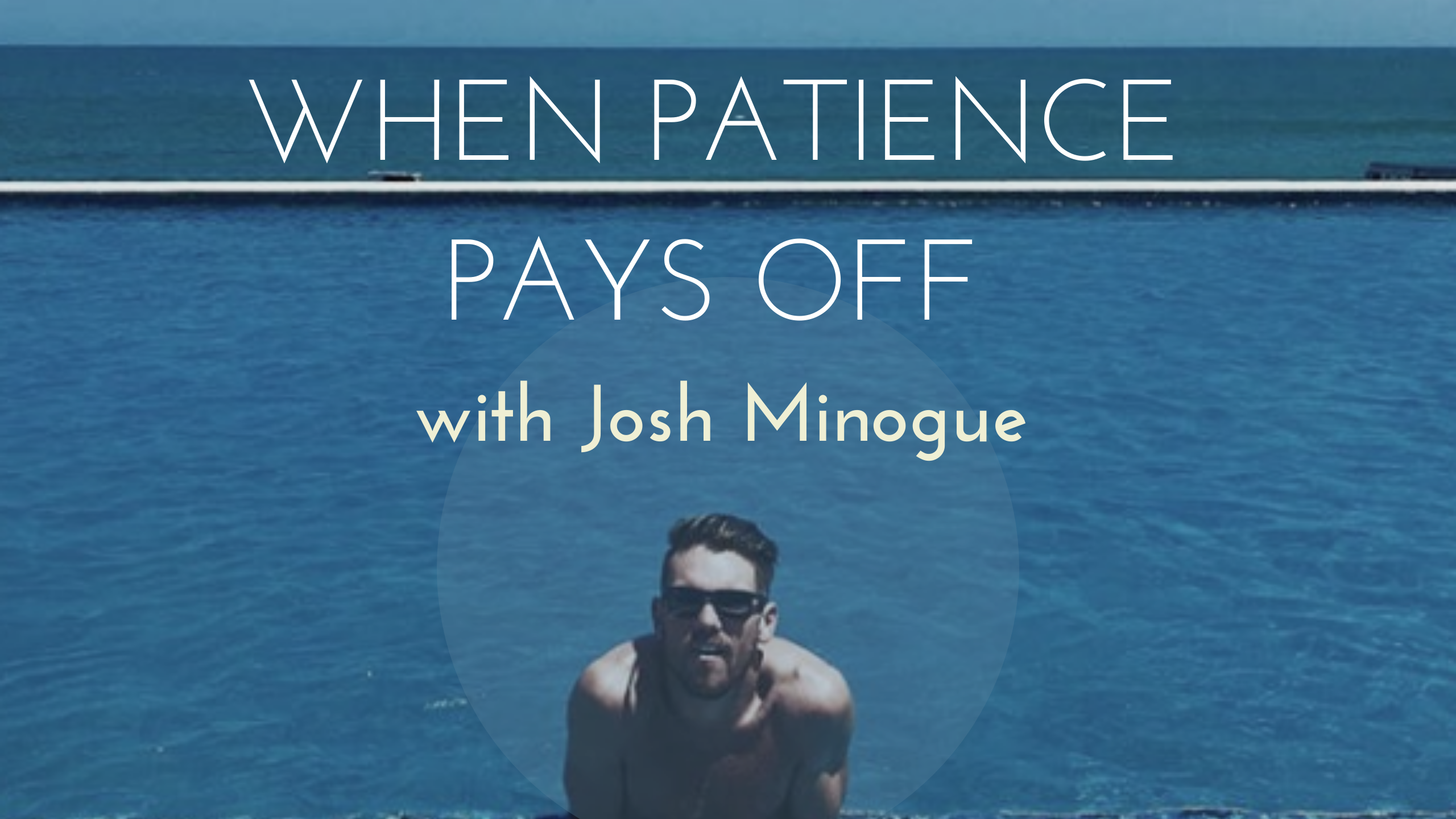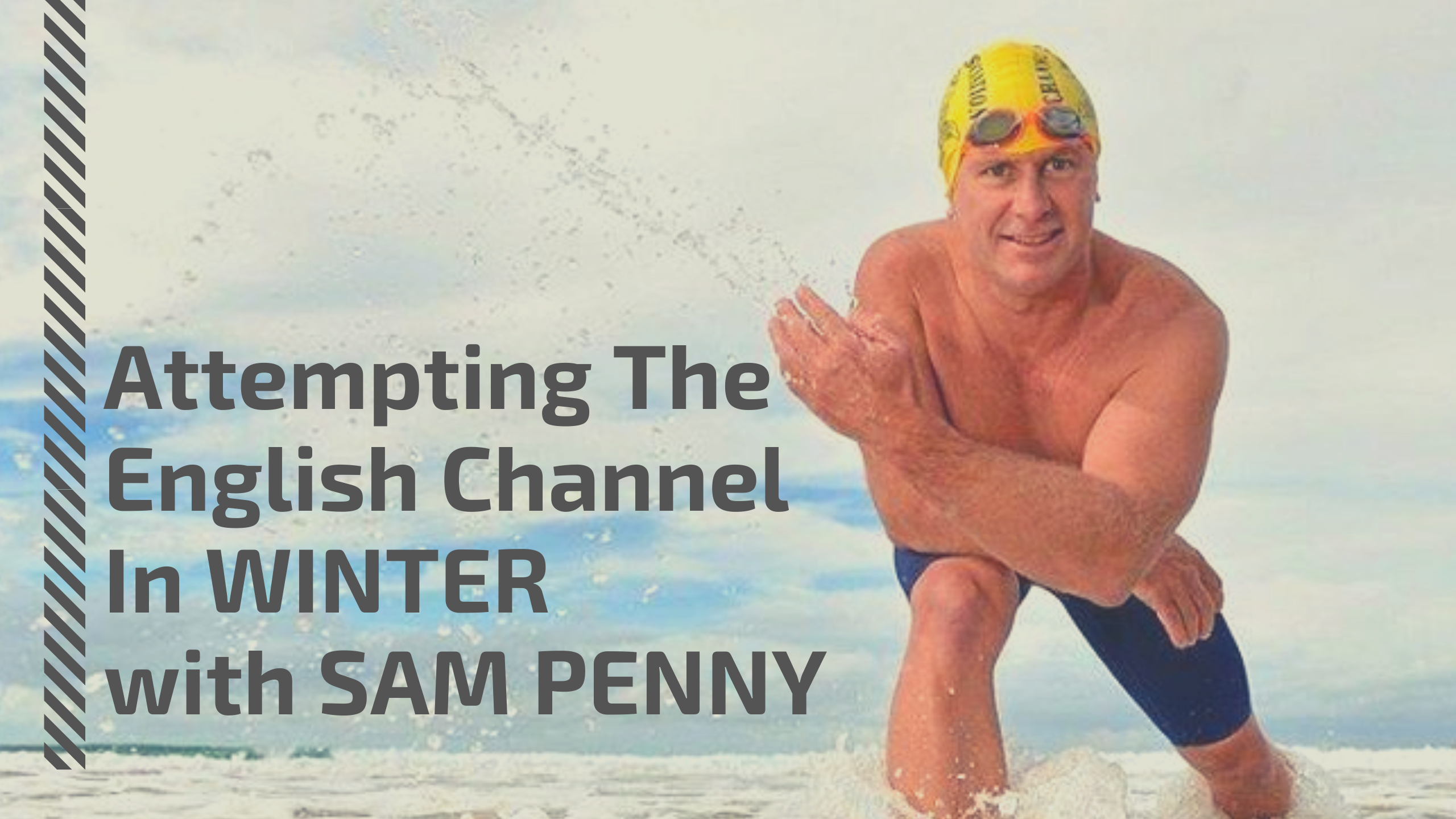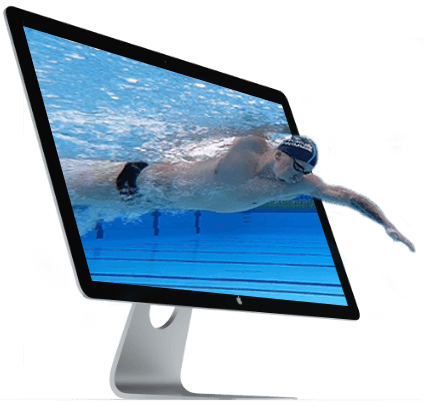Our guest today is Baden Schaff, who is a PGA pro in golf, and he is also the co-creator of Skillest. Now you might’ve heard me talk about Skillest, this is the app that we use at our clinics and at our camps, to help analyze swimmers strokes and also just to really show them what they’re doing under the water. And for me, this is an app that is completely changed the way that we coach, and I’ve got Baden to thank for that. And we’re going to talk a little bit about Skillest, but also talk about what are some lessons that Baden has learned from coaching people in golf, and how we can apply that to swimming, and how you can improve your own swimming through some of those lessons.
05:07 Origin Of Skillest
06:50 Using Skillest For Coaching
11:36 How Effortless Swimming Is Using Skillest
14:03 Breaking Things Down To A Simplistic Level
15:20 Providing Structure And Time frame
16:41 It Takes Discipline
17:37 Don’t Get Distracted
18:46 Trying A different Thing Everyday
19:37 Long Term Thinking
20:19 Coaching Time frame
24:06 Coaching Online
Baden Schaff:
Email: [email protected]
Instagram
@badenschaff
Skillest
Effortless Swimming:
Online Membership
Freestyle Clinics Around Australia
Transcription:
Brenton Ford: Welcome to episode number 142 of the Effortless Swimming podcast. My guest today is Baden Schaff, who is a PGA pro in golf, and he is also the co-creator of Skillest. Now you might’ve heard me talk about Skillest, this is the app that we use at our clinics and at our camps, to help analyze swimmers strokes and also just to really show them what they’re doing under the water. And for me, this is an app that is completely changed the way that we coach, and I’ve got Baden to thank for that. And we’re going to talk a little bit about Skillest, but also talk about what are some lessons that Baden has learned from coaching people in golf, and how we can apply that to swimming, and how you can improve your own swimming through some of those lessons. So Baden, welcome to the podcast.
Baden Schaff: Hi Brenton, thanks for having me. Really excited to be here.
Brenton Ford: We’ve known each other for quite a few years now. I was trying to think back when it was, but I mean I’m thinking maybe five years, you reckon?
Baden Schaff: Yeah, I think potentially even longer. Yeah, potentially longer. But yeah, you’ve always sort of been in the periphery of my thinking, because I do love my swimming and I went and got coaching from you. I reckon it must’ve made seven years ago now.
Brenton Ford: Yeah. I’ll have to search through the emails because the funny thing is, we sort of met each other through swimming and then a couple of years ago, you and your business partner Allen developed the Skillest app, which was primarily set up for helping you teach the golfers that you’re coaching, and improve the way that you coach them. So how did that originate and what was the purpose behind it originally? Because I mean for me it is just been such a game change, I can’t emphasize enough for coaching people at our clinics and camps now.
Baden Schaff: Yeah. And that’s just the coolest thing ever to hear. Obviously when we built it originally, we always have visions that it would be across multiple sports, so that was why I came to you originally to see if you thought it was something applicable to you. But I suppose the origination of the whole idea came from, I’ve been teaching the game golf for 15 years and it’s just during those 15 years that I just saw so many problems with the industry. So the way you use the app is very much in person, where you teach people that are standing in front of you or swimming in front of you, and it’s great for that, for being able to analyze their strokes and then send them home and they effectively then become part of your digital academy, where they can send their stroke when they’re swimming on their own and things like that.
Baden Schaff: But that component of it, that online coaching component, that is what we set out to really solve originally. So as a golf pro, I mean I hated the fact that I had to leave in a really densely populated area to be super busy. I just couldn’t understand why can’t live in the country and still be able to coach. So obviously I was very much restricted by geography, very much restricted by seasonality, so in summer you’re incredibly busy, in winter incredibly quiet. And then I also just noticed a lot of problems with the way students were actually trying to integrate what I wanted them to do. They effectively had to be standing in front of me to be getting better. So people would come for a golf lesson, they would then disappear, they’d come back five weeks later, and they’d sort of integrated or they tried to remember what you’d taught them and life got in the way, and they didn’t do their drills and they hadn’t done anything, and effectively you give them the exact same lesson, when they come back to see you.
Baden Schaff: So what we wanted to do and what we set out to do was effectively create these global marketplace for coaching, using video analysis. So you could learn from any coach anywhere in the world, that you either found on social or through our platform, and then we gave these awesome streamlined tools to be able to upload video footage whenever you wanted. So, because that was one thing in particular is that, when I was teaching someone, I knew that all I needed to do was tell them that they were working on things the right way. So, what I mean by that is that they could, after 24 hours of getting a golf lesson, they could then effectively send something back to me and just say, “Hey, is this what you wanted me to do?”
Baden Schaff: And I think that’s one of the reasons that people haven’t regret is golf, is because they do disappear for four or five weeks at a time, and they just don’t know if they’re working on things the right way. So, that was sort of the genesis of the idea, and now, we got hundreds of weekly active coaches, golf coaches on the app, and we were talking about it previously, we’ve got coaches making up whatever, $100,000 teaching through their phone to their students all around the world.
Brenton Ford: And this might… I mean I’ve sort of emphasized how much I love the app. I’ve got no interest in it apart from we use it and it’s basically saved me from employing someone two to three days a week to download, upload, rename videos from clinics and camps that we do, it saved me so much time and had made my job so much easier to do.
Brenton Ford: And what I really like about the app is, what we’ll often do at clinics is we film people, we do the analysis and then at the end of the clinic we’ll just upload it, hit submit, and then that person’s got it on their app. And so I know people that look at that pretty much every week, and they’re going, “This is what I was doing, and now this is what I need to change.” And it’s really clear what those things are that they need to change.
Brenton Ford: And then now the app is sort of more intended for people who are… You can get access to coaches around the world. We use it sort of slightly differently at the moment, but I love just the ease of use and being able to essentially just use video in a really easy way where you’re not mucking around with emailing files and all this sort of stuff, it makes that very easy.
Brenton Ford: And what we do now, as well as we do followup filmings clinics. So someone who’s come to a clinic, they can come back and get another filming done, and then I do the analysis during the week. And the really cool thing about what we can do now is, I can pull up the old video, look at the changes that they’ve made and go, “Right, this one’s looking good, this is good. All right, you might need to focus back in on your alignment, and now focus on these couple of things,” so yeah, just a really cool way to be able to do what we do.
Brenton Ford: And I mean, you’ve been coaching for a number of years now, and I want to sort of explore some of those things that you’ve… I mean sort of how you use the app to coach, but also some of those things that you’ve learnt as a coach, that’s helped you get better results with your students. So if we dive into a couple of those, what are some lessons that you’ve learned in the last five to 10 years that has changed the way that you approach your coaching?
Baden Schaff: Look, golf is just this crazy game. So as most of all, probably all of your listeners who tried to play the game know, it’s sublime to the ridiculous, you have moments of genius, and then other times you look completely uncoordinated. And this is the fundamental problem with the game, that people can, I always say that you can’t accidentally get into a swimming pool and swim 50 meters in 21 seconds, it just doesn’t happen. But you can actually stand on the hardest golf hole in the world and you can haul an iron shot from 200 meters away. And so what that does, it effectively gives you this false sense of security, it gives you this impression that you should be able to do that all the time.
Baden Schaff: So the hard thing with golf is that people are, they’re always looking at their absolute best and thinking, “Okay, I should be able to repeat that all the time, but it’s actually a lot further away than what they think. So yeah, the fundamental problem is just how it can seem so easy at times, but being able to do that on a repeatable basis, is the hardest thing in the world.
Baden Schaff: And the problem that we face at driving around, just for example where I teach, is that when we’re trying to fix someone’s golf swing, so as you discuss, we film their swing, we get them up on the video, and we analyze them, and then I get them in front of mirrors and I train their body to do the correct thing. We’ll do lots of drills, lots of dry work where we don’t even hit a golf ball. So we try and do lots of that stuff, but the problem is as soon as I turn around and hit that golf ball, they’re worried about the ball flight, so they’re always reacting to the ball flight.
Baden Schaff: And so my job is always to say, “Look, let’s not even worry about the ball flight, that is going to be a consequence of how we change your body to work.” But it’s really difficult, because you’ve got that extra fact that you’ve got, that feedback, every time you make a golf swing, you got the feedback of, ‘Was that a good one or a bad one, based on how well the ball’s fly.” So that’s incredibly difficult to deal with, where when you’re trying to get someone to do a completely different move with their body to what they’re used to, trying to feel very different and then not react to the ball flight is incredibly hard.
Baden Schaff: So what we do is obviously try and get people to drill things as much as possible. I’ll get people to stand at home in front of mirrors all day long. So I remember when I went and studied at an Academy up in Queensland in the early 2000s, this brilliant coach who is still my mentor said to us, “Okay, you need to go and get mirrors.” And myself and my best friend did, we literally went down to Suzanne’s and we went everywhere we could go, and we found every mirror possible so that in the apartment that we were living in, you could not turn around a corner without looking at yourself.
Baden Schaff: So you’d be there having a beer on the balcony, and we had mirrors out on the balcony, so that you could stay in there and train your body to do the correct thing without the influence of the ball there. And there’s absolutely no doubt that is what gets people to do the right thing, because you take that external influence of watching the ball flight all the time.
Baden Schaff: So that’s the thing that is really hard to do, and I’m probably carrying on here a little bit. But the other thing that is really hard to deal with is, that everyone plays the Saturday, right? So generally everyone who want coaching, has got to play this coming Saturday. So you can train them and push their body around, and they can feel like they’re almost having an outer body experience with the way that their body’s working relative to what it used to, and the problem is that they might have four days to try and train that in, and then when I stand on that first tee on Saturday in their Saturday call, they’ll be standing there with the three mates, that they play with every week, they know that they usually slice the ball over to the right, the bank’s over there on the left and everything just goes out the window.
Baden Schaff: They’re just like, “Okay, I’m just going to go back and do what I always do,” and sort of thing. So these are the really difficult things that we face all the time. And sometimes I will tell students that, “Maybe don’t play for a couple of weeks and we just train your body.” So yeah, so they’re the things that I’ve really learnt over the years and yeah, some of the big problems that we face.
Brenton Ford: That’s interesting. The comparison for me I guess is there is… Or the similarities there is that when we do these drills now, for learning the catch in the pool, that are really different and really simple compared to what we used to teach, because that I think is one of the harder aspects of the strike to learn. And so we basically, one of the main drills that we do is called YMC Drill, and that will just take people through the four key positions, in the catch in the pool that you see pretty much every elite swimmer move through, and they kick for five seconds, so I spend five seconds in those four key positions, so ends up being about 20 seconds for the full cycle.
Brenton Ford: But the good thing about that is they have the time to be able to look at what their arms are doing, make any adjustments if they need to, and that’s kind of the mirror for them. They actually get to see what they’re doing, and if they’re not in the right position, make the change and then continue on with it.
Brenton Ford: And what I’ve found by doing that drill is that then they’re not overthinking things, because with drills… There’s drills like doggy scoop and long dog paddle and all these other ones that I think is still great and they have a purpose, but with all of those drills, they’re moving all the time, and it’s quite a complex movement just going through the catch itself. So this is really good for just getting them to adjust their position and have that ability to see what they’re doing and then change it. And then what I like to get them to do, to be able to maintain that and their full stroke is, sometimes you can just put a snot or keep a snorkel on, put a pool boy in.
Brenton Ford: So you take the legs and the breathing out of it, and then you can just even continue to look at the arms at what they’re doing, and you just got to take that easy step first, then you might take the pool boy out, but keep the snorkel on and do a few laps of swimming, and then just sort of take the snorkel off as well, and just progressively build up to that full strike.
Brenton Ford: But yeah, just taking it step by step and making or giving them time or letting them know it’s going to take some time to be able to replicate that at full speed, and for longer distances. I think the comparison between going out and playing golf with your mates and then just falling back into old habits, that to me is either, swimming with friends at a squad or swimming with them at the pool, or being on the watch and uploading your data to Strava and not wanting to look like you’re going 10 seconds slower per 100, if you need to go through that regression to eventually get faster.
Baden Schaff: Absolutely. Yeah, I couldn’t agree with that more. And yeah, and sometimes I think when you are breaking things down to such a simplistic level, people can feel like they’re going back to the beginning, right? And they feel, “Oh my gosh, I’m literally a beginner again, I’m beyond this,” sort of thing. So that’s also a very scary for a lot of students is, when you’re trying to teach them the scales before they play, they can feel like, “My God, I’m starting all over again,” but as you and I both know, it’s not that at all. It’s just, yeah, it’s just getting things correct and it’s amazing.
Baden Schaff: I mean, I always say that when someone is getting a lesson from me and they feel like they’re being ripped apart, it might only be a relatively simple change, but as you know, the way something feels and the way it is, a completely different things.
Baden Schaff: But they can actually feel like when you’re changing it, in their brain, they start to say themselves, “Oh my God, I’m five years away from getting this.” So it feels like it’s five years away, but if they actually do the right work and put the time in, it can happen in months, if you know what I mean. So it can feel like it’s starting all over again, but if they just stick to their processes, that can actually happen a lot faster than what they’re imagining, that it’s going to be.
Brenton Ford: Yeah, and you certainly see that when you coach so many people is that you can see roughly the path, that if they continue on this path with the changes that you want them to make, you can see where they can end up three, four, five months down the track and that can be well ahead of where they currently are, but it just feels so awkward sometimes.
Baden Schaff: Always.
Brenton Ford: Yeah, and what I’ve started to do at times, depending on the person is, at the end of a clinic, we will have gone through our drill progression and sequence, and we’ll be doing the final analysis. And for some people if there’s more than say one or two things to work on, I’ll say, “All right, for the next two to three weeks, you might just focus on your head position and your posture, you might think about keeping your neck long and you might do front kick drill to help implement that change. And then after that, then you might look to work on your alignment, make it go a little bit wider, do that for two to three weeks, and then after that, yeah, go through those catch and pull drills to continue to develop that.”
Brenton Ford: So just giving them that little bit of structure and expected time to be able to make those changes a little bit more automatic. And that way I’ve found, in our case, well I can do that for the next sort of eight to 10 weeks, and it doesn’t feel like I’m a year or two away from getting to where I need to be.
Baden Schaff: Yeah, definitely. But, yeah it takes discipline though, doesn’t it?
Brenton Ford: Oh yeah.
Baden Schaff: That’s the thing, it’s just not for everyone. That is just something, that’s one thing I’ve definitely become very aware of. I’d hate to ever judge students, but you can know relatively quickly I think, that whether or not this is going to work with a certain student, because I mean it sort of gets back to what I said just before is, that students know that they want to play this Saturday.
Baden Schaff: And I mean I get this situation where sometimes people will walk in, just holding onto their driver. They won’t have bought any other golf club, they’ve only got their driver and they just want to fix their driver for Saturday’s sort of thing. And I’m like, “Oh my God, this is so not my student,” sort of thing. So it takes, it does take a special type of student who’s willing to go through a little pain, go through the process, have a lot of discipline for what is absolutely incredible benefits at the end of it.
Brenton Ford: Mm-hmm (affirmative). One of the challenges that I have is, and I mean I know you put out a lot of content as well, there’s just video content is, that there’s so many different things to think about. And I sort of do two videos a week, but then our team puts that into about five to 10 different videos, and they’re all talking about similar but different topics, and so it’s very easy to get distracted.
Brenton Ford: So if I ever coach someone throughout, online coaching or at a clinic, I let them know that, “All right, any videos you see of mine over the next three to four months, ignore them, because you’ve now got what you need to… You’ve now got those things that are going to help you swim faster, so don’t get distracted.” And yeah, if ever doing like one-on-one with someone and do a followup with them, and I’ve said, “All right, these are the two things that you need to do or focus on,” and we come back the next week and the guy, “And I was trying this and I was trying that,” just talking about the different aspects of completely off topic of what we focused on, 100% chance that they haven’t made those changes, because they’ve just gotten distracted and are working on things that they don’t actually need to work on.
Baden Schaff: 100%, yeah. In golf, we call them searches. They’re just a every day they’re on YouTube and watching something different and trying a different thing every day, and there’s no doubt, look how I used to be one of those, as a kid I was always searching for that probably quick fix. And I think in the golf industry, we are to blame for the problems that we have, because through all of the… Not necessarily social media and YouTube, but absolutely through Golf Magazines and Golf Digest and these things over the years, everything is the quick fix, “Fix your grip to gain 30 yards,” and there’s this, the rhetoric around that is just, yeah, it’s been terrible for years sort of thing. So to try and say to someone, “Hey, there is no such thing as a quick fix and it’s a six month process,” that’s, yeah, it takes a special kind of person.
Brenton Ford: Yeah. I’ve tried to make my messaging a bit more about that, is having that longterm thinking and being willing to put up, sort of suck it up for a couple of weeks while it doesn’t feel good, and letting them know how long to expect, how long it can actually take. And what I’ve enjoyed about doing that is it doesn’t set unrealistic expectations, and I think and for me it attracts a type of person that I really enjoy working with, because they actually are willing to put in the work and think longterm about it. So, and when you’re coaching, that’s what it’s kind of all about, is working with people who you enjoy working with, and have got the right mindset and frame of mind about it.
Baden Schaff: Yeah, I completely agree.
Brenton Ford: And so for the coaching that you’re doing, you’re pretty much all one-on-one coaching, what sort of timeframe do you like to see people in? Is it once a week, once every two weeks? What have you found to work best?
Baden Schaff: It really depends on the student. So I sort of pretty much getting back to sort of what we just talked about in there, it comes down to what they’re doing in between time. So the biggest misconception when you come and get a golf lesson is that when you’re walking away from that golf lesson you’ve done your work, it’s actually the opposite of that, that’s when the work starts. So, when you come and get a lesson from an incredibly content heavy, I use Skillest all day to literally record everything I’m saying to them effectively. So I use the analytical tools and I draw all over and I’d bring in model swings and I compare them, so when a student goes home, they can go home with up to 20, 25 minutes worth of content from an hour long lesson sort of thing.
Baden Schaff: But that’s their information, that’s when they take that they go home and they do something with it. If they do absolutely nothing in between time, it can work both ways. Sometimes I need to come back immediately, because they effectively need you to be there to get better, but sometimes if they’re working on it, just grinding away, standing in front of mirrors, doing really slow motion swings, I love a lot of slow motion stuff. When I go and hit golf balls, and I still do this a lot, I’m always working my own golf swing. I’ve very rarely hit driver, three wood or anything really long, all I do is stand there and train my body to do the right thing, and I only really use sort of use [inaudible 00:21:45], to do that.
Baden Schaff: And then when I actually go to the golf course, I hit my drive really well, even though I’m never practicing with it, because I’ve just trained my body to do the right thing with the smaller club. So it’s the students who go away, drill it in, then they’ll use Skillest often to send me something and just make sure they’re working on things the right way, I’ll be like, “Yep, that’s perfect,” or “No, you need to do a lot more of that.”
Baden Schaff: I mean you can sort of, you can go as long as sort of four weeks in between seeing someone as long as they’re chipping away at the right things. But then sometimes with the student, if they are coming along and they literally swing, it’s a train wreck, they’ve got things moving all over the place, it’s completely unrepeatable, they don’t know where their ball flight’s going and it is a really big rebuild, you may literally have to see them within the week again sort of thing.
Baden Schaff: So it really does depend on who the student is, what stage of the game they’re at, and then what they’re doing in between time, which is absolutely everything, is what they’re doing in between time.
Brenton Ford: Yeah. I’ve found a very similar thing when a people join our Stroke Analysis Membership. Some people will I say, “Look, send a video next week or in two weeks after you’ve had a chance to practice these drills,” and maybe for the first two to three months, they’re sending a video every week or two and then after that, you can extend it out and might end up being three or four weeks or even more than that depending on where they’re at. So yeah, usually the newer swimmers, the more beginner swimmers need that little bit more, that higher frequency, and then those that are more experienced, not as often. But usually in the beginning, I like to have them send videos on a more regular basis, because then you can get a sense of their ability to be able to change their stroking.
Brenton Ford: When I first started coaching people online or working on helping them with their technique, I had no idea if it would work at all. I don’t know if you had that same sort of question about when you started coaching people through Skillest, and you didn’t actually seem to face-to-face, and I thought, “Look, I’ll give it a try and just see what happens.” But I was amazed at the results that people have gotten and continue to get just through online coaching, people who I’ve never met face-to-face.
Brenton Ford: What I think it’s about, is if you can explain things the right way, you can assign the right drill and let them know how it will feel and then what to expect, and you have that high enough frequency of sort of getting videos that, people then in their own time, they can just really think about it and they’re not overly sort of stress because they’re not in this pressure situation of having someone look over them, it actually can work even better sometimes for some people.
Baden Schaff: Well that’s exactly what we’re finding on the golfing side of things is, and this is probably, it was a thesis of ours, but we weren’t 100% sure if it was going to work out that way. If you think about Driving Range where I work, and I still do work, sort of takes three days a week sort of thing. This by PGA professional standing there, you walk in there, there’s a lot of commotion, you walk over to your car, it’s really quite intimidating, he’s already given seven lessons that day, you have much patience, it’s a horrible learning environment to be perfectly honest. And especially, and I know when I’ve had swimming lessons and when I’ve had even sort of stroke correction during a squad session, it’s just the wrong time but almost do it, because you’re so intent on doing it right in that really small amount of time you’ve got to do it.
Baden Schaff: So obviously it’s, at the Driving Range, just like a sausage factory, people are coming in for hour, after hour sort of thing, and you’re so intent on getting it right as a student in that one hour that you can’t actually execute. Whereas this is, “Okay, here’s the information, this is what you need to work on in your stroke or in your golf swing. Do it in your own time, in a really safe and comfortable environment, and do it without the pressure.” And that’s exactly what we’re finding, is that there’s also a sense of self-discovery that goes on that doesn’t happen as much in the one-on-one environment, when your pro is there, your golf pro or when you’re swimming coach is there, basically you’re pretty much are being told what to do and there’s no self-discovery component to it at all, whereas this is what happens online.
Baden Schaff: So I mean, there’s a bunch of things that have started popping up that way, I’m really excited about in Skillest, which is we think it could potentially been even better way to learn, which is exactly what you just said, so, yeah we’re really excited about that. Having worked with people who are sort of learning specialists, we know that learning isn’t linear and it takes a lot of time, but as soon as you add multiple stimuli to the environment, you can retain anything effectively.
Baden Schaff: So, if you go to a really busy swimming pool, right? And you’ve got a really great character but potentially really intimidating coach, and then you’ve got six other people in the line with you, who look like they’re doing it perfectly and you feel like you can’t, these environmental things mean that you just won’t be able to execute effectively. So if you can put yourself in your really comfortable own environment, and just thinking about what relates to you, don’t worry about what anyone else is thinking, it’s proven that that’s actually a better environment to learn in.
Brenton Ford: Yeah. That’s interesting that you’ve, I mean found pretty much exactly what I’ve come to learn over the last few years of coaching people online. And I think with squad, trying to get any sort of technique help in a squad is virtually impossible. Because first of all, the coach just doesn’t have the time to be able to dedicate the time that’s needed to be able to sort of give you feedback and explain it properly. And obviously there’s all the other people swimming, you’re going fast, you just don’t have the time and the space to be able to change it. So, I think that’s why our clinics have… Part of the reason why the clinics are really popular, is that that’s all we do. We just focus on technique, it’s six swimmers, it’s one coach, got heaps of time, heaps of space and you have that time to go through that self-discovery and there’s no one, yes some people will be a bit nervous at the start, but as you go through it’s like everyone’s in the same boat, so yeah, that’s an interesting find.
Brenton Ford: And I was quite surprised when I started to see some of the improvements that people were getting, and I had a guy email me two days ago and he started off around 210 per 100, he’s now down around 140, and I’m going to get him on a podcast soon as well. But there’s been so many people like that who have done exactly the same just through regular feedback, and it’s really good to see. And I think for me as well, from a coaching perspective, when you just there, there’s no pressure to, not be beyond your game sort of thing, it’s kind of not the way I say it, but when you’re just at home, it’s quiet, you look at the video, you can just kind of get a really good sense of what they’re doing, and then it’s easy to pick out the faults and give those corrections. It’s-
Baden Schaff: And that’s… Sorry to interrupt, but that’s the other thing that we’re seeing, there’s a coach that uses the AR app in New York and he said to me the other day, “I’ve never given a bad online lesson,” because when someone is standing in front of you… This is obviously getting back to the sausage factory thing at the Driving Range where you might have nine, one hour lessons in a row you might have 18, half an hour lessons during that period.
Baden Schaff: Basically you’ve got to make really split second decisions on, “Hey, you’re going to totally reconstruct this person’s golf swing,” and you quite literally at the very start when you get that video and you’re sitting down there, you are making split second decisions that are going to have really longterm ramifications for this person’s progression. Whereas when I get someone sending me video, I might watch it as soon as it pops up in my Skillest profile, and I’ll have a quick look at it and then I’ll put it back down and I might go on with the rest of my day, for the next few hours before I even think about giving him or her any information at all. And that just is such a better way to actually come up with the best strategy for what they need to do.
Brenton Ford: Mm-hmm (affirmative). Yeah. Had someone told me that four or five years ago, I wouldn’t have believed them. I would have thought that, “There’s no way they you can be better than face-to-face, but there’s so many benefits to it. So mate, that’s fantastic. Well thanks for sharing that and thank you hugely for creating Skillest, because it’s made my life so much easier and just don’t stop because we really need it, we rely heavily on it, so mate thanks very much. And if anyone is looking to get in contact with you in terms of Skillest or if they enjoy their golf and they live in Melbourne or around the world, because I know you’re starting to run some sort of camps or trips around the world, so what’s the best way to get in contact with you?
Baden Schaff: Yeah, we’ll email is [email protected], and I’m on Instagram as well, which is Baden Schaff, which is B-A-D-E-N, S-C-H-A-F-F, you can get me there, DM me there. And yeah, obviously you can download Skillest, there’s cool content you can watch on there as well. But if you do have your golf swing, you can literally send it to me and we can break it down and work together wherever you live.
Brenton Ford: Love it. Thanks very much mate, and I’ll chat with you soon.
Baden Schaff: Thanks, Brenton.
Brenton Ford: All right.








